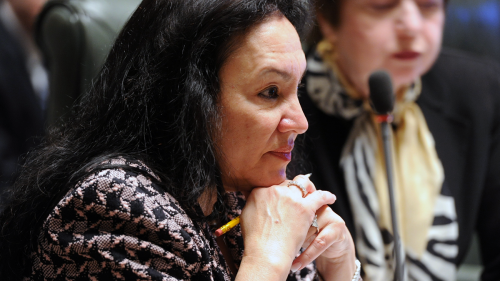Martin Luther King, Jr. famously wrote about the critical linkage between intellectual rigor and personal character in an essay titled, “The Purpose of Education.” He argued that a true and complete education must go beyond the traditional areas of scholarship. Here’s how Dr. King put it: “Education must enable one to sift and weigh evidence, to discern the true from the false, the real from the unreal, and the facts from the fiction. The function of education, therefore, is to teach one to think intensively and to think critically. But education which stops with efficiency may prove the greatest menace to society…We must remember that intelligence is not enough. Intelligence plus character – that is the goal of true education.”
Of course, Dr. King had it exactly right. We all want our children to graduate high school with the knowledge they’ll need to succeed in higher education or a high-skills job. But we want more than that for them, and for society, too. We also want our children to graduate prepared to engage with the world around them as informed, caring and civic-minded citizens of their communities, their state and their country.

For years, the national discussion on education reform centered around college and career readiness. To be sure, no one questions the need to prepare students for higher education and an increasingly competitive work environment. At the same time, however, we must do much more to prepare them for civic engagement. It is well past time to place civic readiness on an equal footing with college and career readiness.
As the nation continues to sort through the changes wrought by a new presidential administration, it is more important than ever that our students have a firm understanding of civics and the importance of civic engagement. Every day, questions are raised about the power and the scope of authority of our three branches of government. Established norms about the proper role of government and our cherished institutions are shattered daily and we find ourselves questioning what it all means. Imagine how confusing it must be for our students.
That’s why the Board of Regents and I are focused on the interconnectedness of college, career and civics readiness. It’s why we adopted the New York State K-12 Social Studies Framework, following three years of work and input from a diverse and broad range of content experts.
Too often, instruction in Social Studies has been given short shrift, especially at the elementary level. Social Studies integrates critical thinking and literacy skills, and it gives students the grounding in civics they need to become engaged in the world around them. The Framework will help our students understand Social Studies better, and ultimately it will make them better citizens.
Too many of us know what it is like to be on the receiving end of bigotry based on our race, our ethnicity, religion, poverty, immigration status, ability to speak English, sexual orientation, disability, and on so many other bases. We are better than that. And we know from our collective experiences what needs to be done across a wide spectrum of educational issues to help all children overcome that which threatens their individual journeys to success – especially for those who have been historically disenfranchised. So, it is essential that we provide our students with a firm grounding in civic learning and democratic engagement.
And it makes a difference. History shows that young Americans are often at the forefront of episodes of profound change. Students were at the vanguard of the civil rights movement. In time, Congress yielded and passed the Civil Rights Act of 1964 and the Voting Rights Act of 1965. Students spearheaded the fight to end United State involvement in the Vietnam War. It took time and persistence, but the nation came to recognize the futility of that war. And just the other day, we were so pleased to learn that Mayor de Blasio is taking concrete steps to reform the selection process for entry into the city’s elite schools, following years of activism and advocacy by students and other concerned New Yorkers. This change, alone, will ensure greater fairness and equity for countless students of color throughout New York City.
To be certain, we face challenging questions as a nation. Many Americans look to the future with genuine fear and uncertainty. But please know that my colleagues on the Board of Regents and I will never stop working for all of New York’s children. Yes, we will continue to prepare them for higher education and careers – but we will also prepare them to engage in the world around them as informed and compassionate individuals.
I began this column by quoting Dr. King, and it is appropriate to end with his words as well. “Education without morals is like a ship without a compass, merely wandering nowhere. It is not enough to have the power of concentration, but we must have worthy objectives upon which to concentrate. It is not enough to know truth, but we must love truth and sacrifice for it.”
______________________________
Betty Rosa is the Chancellor of the New York State Department of Education Board of Regents and a third-term Regent for the 12th Judicial District (Bronx County).

